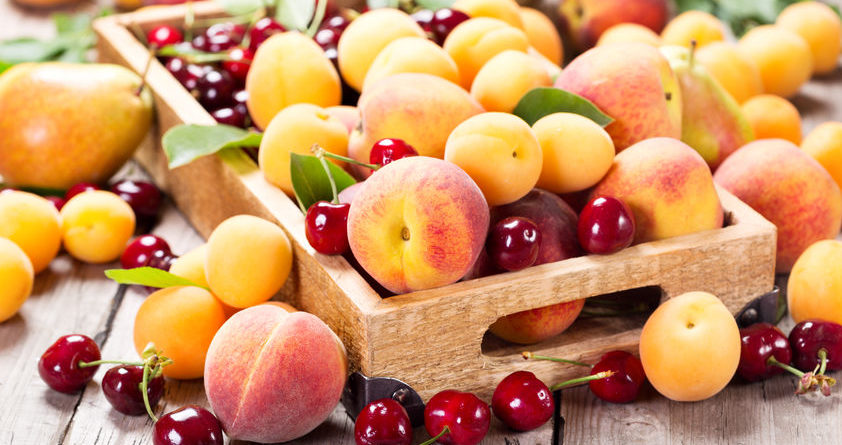Written By Julie Paiva, CHHC
With school starting, it’s easy to anticipate the coming of autumn and cooler weather. However, this warm weather still has a lot to offer when it comes to fresh produce. If you haven’t taken advantage of all the delicious seasonal fruits and veggies by now, it’s the perfect time to start eating nutrient-dense foods that fight inflammation. How amazing is it that we have the ability to aid in curbing chronic inflammation through our food choices? What we eat can not only increase or decrease inflammation but also increase or decrease our risk of developing diseases and symptoms.
Seasonal fruits and vegetables are often richer in nutrients than those raised on conventional farms and shipped around the world, since the distance from farm to table is shorter. Plus, local seasonal produce also tends to be less expensive to purchase than similar produce from faraway farms. (See previous articles on the benefits of seasonal and local produce.) Organic is always the best option, but if you can’t buy everything organic, be sure to follow the dirty dozen list. Summers bounty of beautiful, fresh produce provides some tasty fruits and veggies that also help the body to reduce inflammation. Below are some of summer’s seasonal picks that aid in the body fighting inflammation.
Cherries
Tart cherries can help reduce inflammatory markers and recovery time following a workout. Cherries contain phytonutrients called anthocyanins, which give them their deep-red color and may also have an anti-inflammatory effect.
Beets
Beets are a tasty and classic summer favorite that are loaded with healthy nutrients like the anti-inflammatory compounds, anthocyanin and betalain.
Blackberries
Like cherries, blackberries are a great source of anthocyanins. In fact, blackberries have been shown to have the highest antioxidant capacity when compared to raspberries, cranberries, and strawberries.
Broccoli
Broccoli is another yummy summer favorite that’s also packed with healthy nutrients great for its digestive and anti-inflammatory properties.
Cabbage
Cabbage is a major source of sulforaphane, a compound that helps reduce inflammation and may also help reduce the risk of cancer. As a relatively inexpensive vegetable, a head of cabbage goes a long way during the week. Try roasting cabbage wedges, adding thin slices to salads, or including it in a fresh summer stir-fry.
Cauliflower
Cauliflower can be used in a number of ways, but it’s also great because of the nutrients it contains. For example, cauliflower contains indole-3-carbinol (I3C) which may be anti-inflammatory.
Tomatoes
As a great source of lycopene (an anti-inflammatory compound), tomatoes may help reduce the risk of both cardiovascular disease and cancer. They’re also a great source of vitamin C, an antioxidant that helps boost immunity and keeps skin healthy.
Peaches
Peaches are high in vitamin C and a great summer treat that can help reduce excess inflammation. To get the most benefits, opt for fresh organic peaches (avoid canned) and eat the peel, too.
To further reduce inflammation, be mindful of your consumption of highly processed foods, added sugars, and alcohol and be sure to get enough sleep.





The information is ALWAYS helpful and I keep notes to remind myself. Thank you for your passion for health and helping others.
I pass several of your articles to family and friends